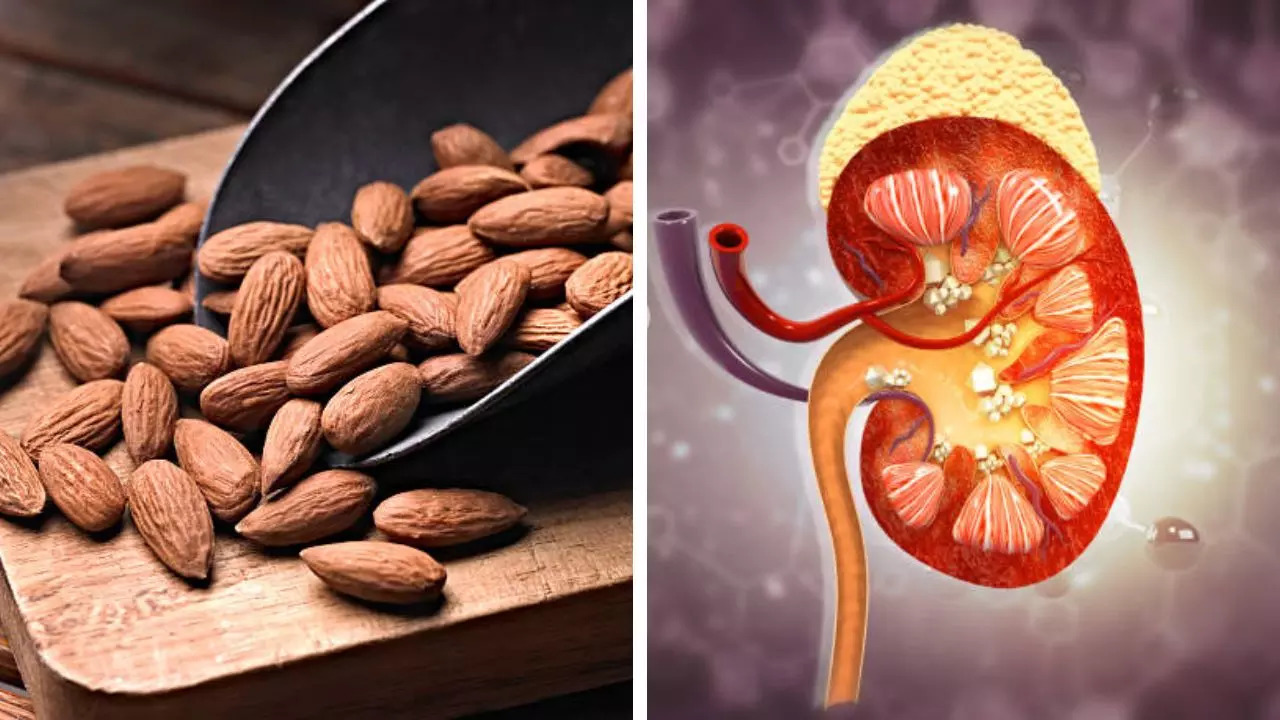Almonds are loaded with oxalates, natural compounds that bind with calcium and form kidney stones.
Almonds are among the most popular nuts in the world. Packed with antioxidants, vitamin E, protein, and fiber, almonds have a number of health benefits, including supporting heart health and lowering blood pressure levels. They are also rich in healthy fats and minerals.
Almonds are also known to reduce blood pressure and the risk of heart disease and cancer, while decreasing insulin resistance.
However, many people consume almonds in large quantities in order to take care of their health, without even realizing the side effects they can cause. According to experts, these nuts can cause kidney stones, which are clusters of crystals that form from minerals and other substances in the urinary tract.
According to experts, while most stones pass out of the body through urine on their own, they can be very painful as they progress and a procedure may be needed to break up or remove the stone if it can’t pass on its own or is causing a blockage.
Why do almonds cause kidney stones??
Doctors say almonds are packed with oxalates, natural compounds that bind with calcium and form kidney stones. The body is said to absorb oxalates from nuts better than from other food sources.
“Excessive consumption can lead to formation of oxalate stones in the kidney, especially in those people predisposed to hyperoxaluria when they have too much oxalate in their urine,” Dr Srinivasa Prasad MD, Senior Consultant, Nephrology, MGM Healthcare, told Times Now.
How many almonds should you eat?
According to experts, eating 20 to 23 almonds a day for adults is the ideal amount that can help you avoid painful and bothersome kidney stones. People who are prone to kidney problems or have a history of kidney stones should be especially careful to eat almonds in moderation.
“Almond consumption should be moderate, along with a low-oxalate diet and a calcium-rich diet. Soaking almonds in water overnight will reduce the oxalate content. Also, commercially available almond milk is low in oxalate,” said Dr. Prasad. “Also, drinking at least 2.5 liters of water per day and a low-salt diet are good healthy dietary options without the risk of developing oxalate stones,” he added.
What other foods are high in oxalates?
Some other everyday foods that are high in oxalates and should be consumed in moderation include:
- Soy products
- Chocolate
- Oats and oat bran
- Red beans, white beans and broad beans
- Beets, spinach, kale and tomatoes.
Disclaimer:
The information contained in this post is for general information purposes only. We make no representations or warranties of any kind, express or implied, about the completeness, accuracy, reliability, suitability or availability with respect to the website or the information, products, services, or related graphics contained on the post for any purpose.
We respect the intellectual property rights of content creators. If you are the owner of any material featured on our website and have concerns about its use, please contact us. We are committed to addressing any copyright issues promptly and will remove any material within 2 days of receiving a request from the rightful owner.

